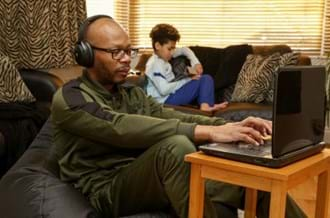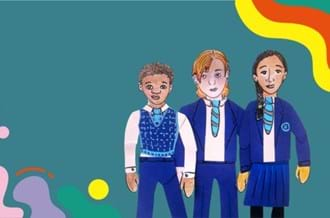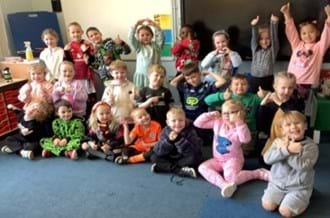Inappropriate content: helping your child to stay safe
Inappropriate content: helping your child to stay safe
Since the pandemic, we’ve been more reliant on the internet than ever before. Many of us will have worked from home, watched films or TV online during the lockdowns, and kept in touch with loved ones via video calls or social media.
The same can be said for children and young people, who are increasingly online. A recent Ofcom report found that during 2020:
- 9 in 10 5-15 year-olds watched TV or films through subscription streaming services such as Netflix or Disney+
- 87% of 12-15 year-olds used social media sites or apps
- 42% of 5-12 year-olds used social media (despite being under the minimum age requirement)
- 7 in 10 children aged 5-15 played games online
With social media, online gaming, and streaming services growing in popularity for adults and children alike, it’s important that we all know how to stay safe online – and how to support children if they see inappropriate or upsetting content. We’ve shared some tips, and useful resources, below.
Talk to your child
Try to have regular conversations with your child about how to stay safe online and how to know what content is appropriate for them. If you’re not sure how to start the conversation, try watching this video from Newsround about staying safe online, then discussing what you’ve watched together.
Your child may feel uncomfortable or be defensive when asked about what they do online, so make sure you listen and make them feel heard, before discussing anything or sharing your concerns.
We recommend reading the NSPCC advice on talking to your child about online safety.
Stay calm
It’s important your child knows they can talk to you about anything they see online, and that you won’t be angry with them if they see something they shouldn’t. This means they’ll be more likely to come to you with future concerns or worries.
If your child has seen something concerning or something that has upset them, start a conversation about what they’ve seen, how they found it, and how it’s made them feel. Sometimes content is shared between children in a school, either via social media or word of mouth, so in some instances you may want to let the school know too.
We recommend reading this advice from Childnet on what to do if your child sees something upsetting online.
Be curious
If your child wants to watch or play something, do your research and find out more about what it is your child wants to do. Consider age ratings, speak to others who may have watched or played, or watch or play it yourself. You know your child best, and will know if something feels right for them.
You could even play, watch or browse together. Showing an interest in the things your child enjoys can help them feel understood and valued, and more willing to follow your rules.
We recommend looking at Common Sense Media, a website that reviews various content that children may be accessing (TV shows, films, games, books, apps). You can search the site by the show, and read what other parents or children have said about the content.
Set up parental controls
There are ways you can limit what your child is able to access online, using parental controls. Before setting these up, talk to your child about the key sites and platforms they use, how and why they use them, then decide if or how to limit access.
This could be setting up time restrictions so your child can’t go on certain apps or sites after a certain time of day (or for over a certain amount of time), setting your child up with a Netflix or Disney+ profile so they can’t watch content that’s not appropriate for children, or you could restrict certain sites completely.
We recommend these tips from the UK Safer Internet Centre on safety tools on social networks and setting up parental controls using your home internet provider.
Other resources you may find useful
News & blogs

Place2Be online parenting course now available to organisations
Place2Be's online parenting course helps working parents and carers feel better equipped to manage their parenting journey.
Read more
Three charities launch wellbeing video for young carers
Three charities have joined forces to launch a new video aimed at fostering the wellbeing and creativity of young carers.
Read more
“Know Yourself, Grow Yourself”: A look back at Children’s Mental Health Week 2025
During Children’s Mental Health Week 2025, we encouraged people to embrace self-awareness and explore what it means to them.
Read more



